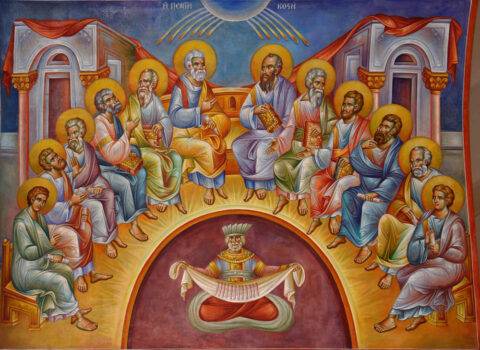
Calendar for June 8 The Descent of the Holy Spirit on the Apostles – Spirits – Trinity
After Christ’s ascension, the disciples remained in Jerusalem and in one room on Zion they often gathered together and prayed to God, eagerly awaiting the promised Comforter, the Holy Spirit, who comes from the Father. The place of Judas Iscariot among the twelve was filled by the lot with Matthias. On Pentecost, they were all together, when a roar filled the whole house and tongues of fire appeared and rested on each of the apostles. Going out onto the roof of the house, they spoke and preached to the gathered people in languages they had not known before, so that all those gathered, both Jews and non-Jews, understood them. Three thousand people on this day believed the apostles’ preaching and were baptized. This day is considered the birthday of the Church of Christ.
Just as on the feast of Pentecost the Jews, and therefore the apostles on that Pentecost, decorated their houses with branches, flowers and grass, recalling the time when, after slavery, they wandered with Moses in the desert and lived in huts made of branches and leaves, so today on the feast of the Descent of the Holy Spirit upon the Apostles, Orthodox churches fill themselves with grass and flowers from which wreaths are woven.
SPIRITS, Trinity, Descent of the Holy Spirit upon the Apostles, a feast that represents the birthday of the Christian Church; and is celebrated on the 50th day after the Christian Passover (Easter), and is also called Pentecost. This Christian feast corresponds to the Jewish feast of Pentecost, which was celebrated as the Feast of Weeks (Sunday) or the Feast of Harvest (Exodus 34:32), also on the 50th day after Passover. In the Christian Church, Pentecost commemorates the Descent of the Holy Spirit upon the Apostles.
On the fiftieth day after the Resurrection and the tenth day after the Ascension, the abundant grace of the Holy Spirit was poured out upon the disciples of Christ, filling them with the power to establish the law of Christ on earth: “And when fifty days were fulfilled, all the apostles were with one accord in one place. And suddenly there came from heaven a sound like the rushing of a mighty wind, and it filled the whole house where they were sitting; and there appeared to them cloven tongues as of fire, and one sat upon each of them. And they were all filled with the Holy Spirit, and began to speak with other tongues, as the Spirit gave them utterance.” (Acts 2:1-4) Thus was fulfilled what Jesus Christ had promised his disciples before his ascension to heaven. The power of the Holy Spirit immediately began to operate because St. Peter then won three thousand people to the doctrine of Christ with his fiery word.
PENTECOST- In Judaism, the fiftieth day after Passover, or the Feast of Weeks (Exodus 34:22), or the Feast of Harvest (Exodus 23:16), or the Day of Firstfruits (Numbers 28:26). According to the rabbinic interpretation in late Judaism, Pentecost also commemorated the receiving of the Sinai law, for which there is no biblical basis. Seven weeks were counted from Nisan 16 (March-April), and the next or 50th day was the day of Pentecost, which fell on Sivan 6 – sometime in late May (Exodus 23:16; 34:22; Leviticus 23:15-22, Numbers 28). During this Jewish holiday in the Jerusalem Temple, in addition to prayers and sacrifices, certain sections of the Mosaic Law and other sacred books (later also from the Talmud) were read. As on Passover and the Feast of Tabernacles, on Pentecost all adult Jewish males were required to visit the Temple in Jerusalem.
Pentecost was a Jewish day of prayer and the people were especially commanded to rejoice before the Lord, with their households, their servants, the Levite in his place, and the stranger (foreigner), orphan, or widow “in the place which the Lord your God chooses to make his name dwell there.” (Deuteronomy 16:9-12). A special feature of the celebration was the offering of two leavened loaves baked from new wheat flour (the firstfruits of the harvest). With them were offered two lambs as a sacrifice of atonement, and all this was lifted up before the Lord and given to the priests; since the loaves were leavened, they could not be offered on the altar (altar). The other sacrifices were as burnt offerings: a calf, two rams, and seven lambs “with their grain offerings and their drink offerings (drink offerings)” and a goat as a sin offering (Lev. 23:17-19).
Until the offering of the Pentecostal loaves, the fruits of the harvest were not to be eaten, nor could other firstfruits be offered. The whole ceremony culminated in the consecration of the harvest to God as the giver, and to whom both the land and the people were holy, which began with the offering of the sheaf of wheat at Passover. The interval between these two feasts was considered a religious season. The celebration of Pentecost itself is mentioned only once in the Bible (2 Chronicles 8:13). Pentecost is the only one of the three great feasts that is not mentioned as a commemoration of events in Jewish history; but such significance is found in the fact that the law was given at Sinai on the 50th day after the deliverance from Egypt (cf. Exod. 12 and 19). At the Exodus, the people were offered to God as living firstfruits (firstfruits); at Sinai their consecration to Him as a people was completed.
The archetypal meaning of Pentecost is evident in the events of the day of Pentecost recorded in the Acts of the Apostles (Acts 2). Just as the appearance of God at Sinai was the birthday of the Jewish people, so the New Testament Pentecost (or Pentecost) was the birthday of the Christian Church.
PHOTOS
RELATED ARTICLES
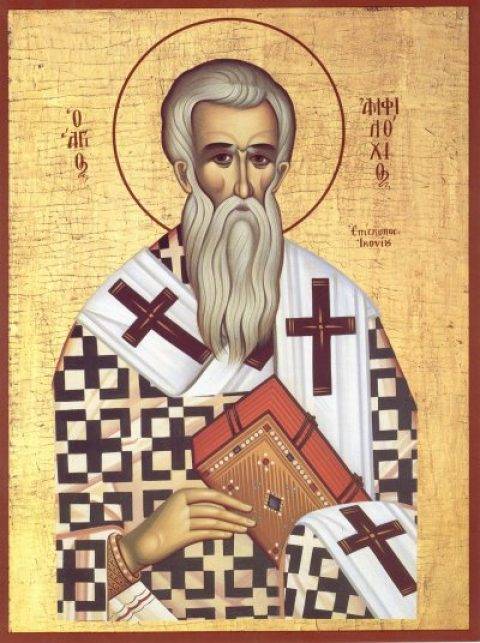
Calendar for December 6 Saint Amphilochius of Iconium
Born in Caesarea Cappadocia, a countryman and friend of Saint Basil the Great....
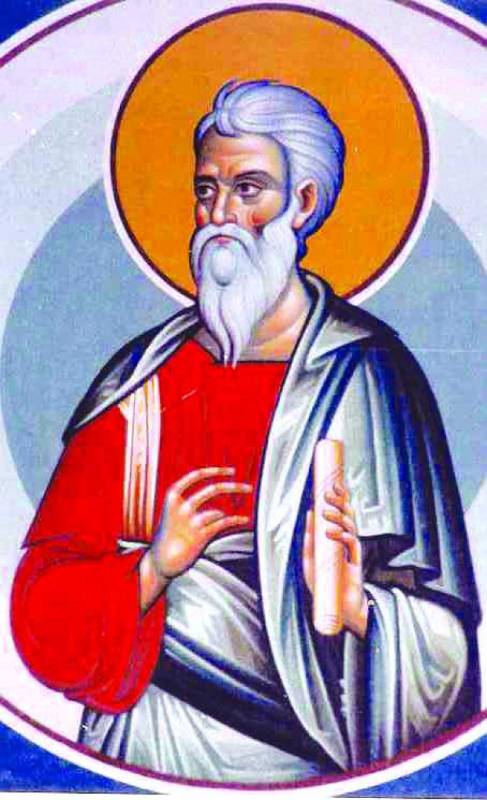
Calendar for December 5 Holy Apostles Philemon, Apphia and Archippus
Saint Philemon was a native of Colossae. A disciple of the Apostle Paul. The...
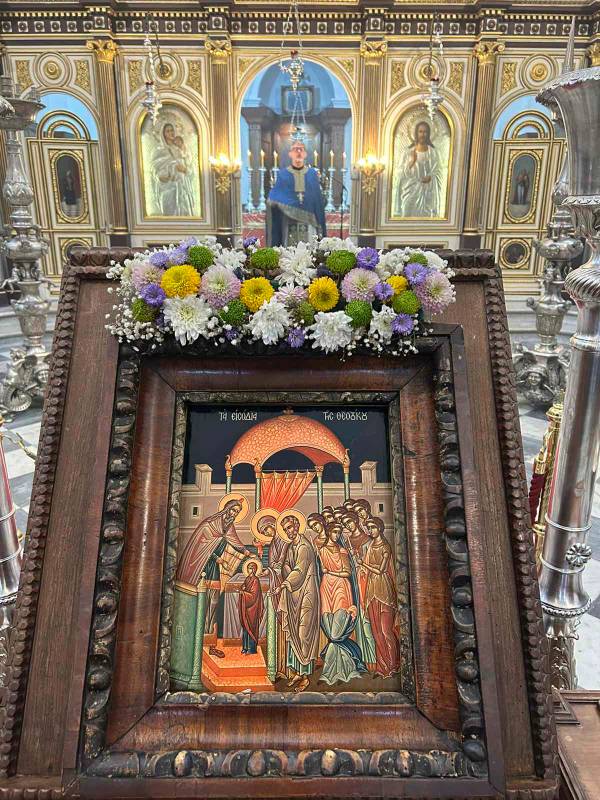
THE INTRODUCTION OF THE MOTHER OF GOD LITURGICALLY CELEBRATED IN THE CHURCH OF ST....
The Feast of the Introduction of the Mother of God was liturgically celebrated...


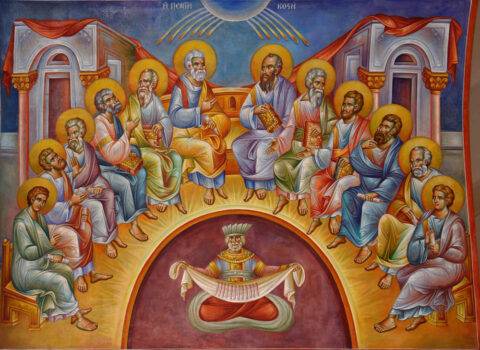

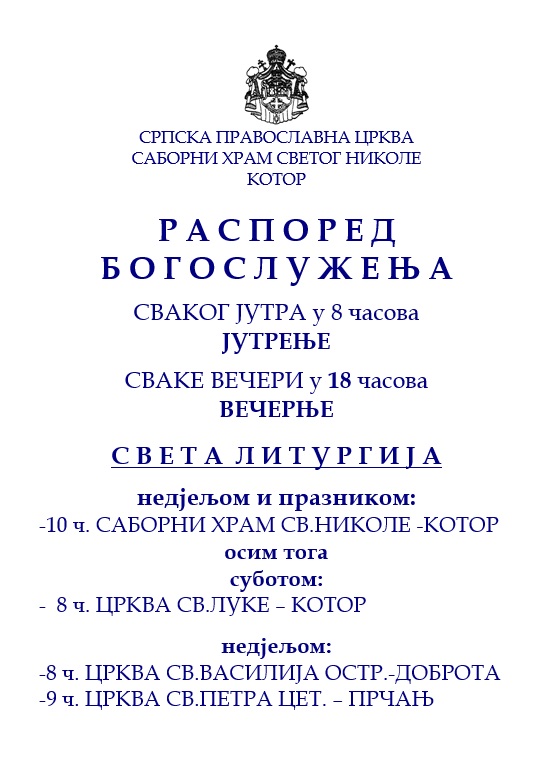
.png)